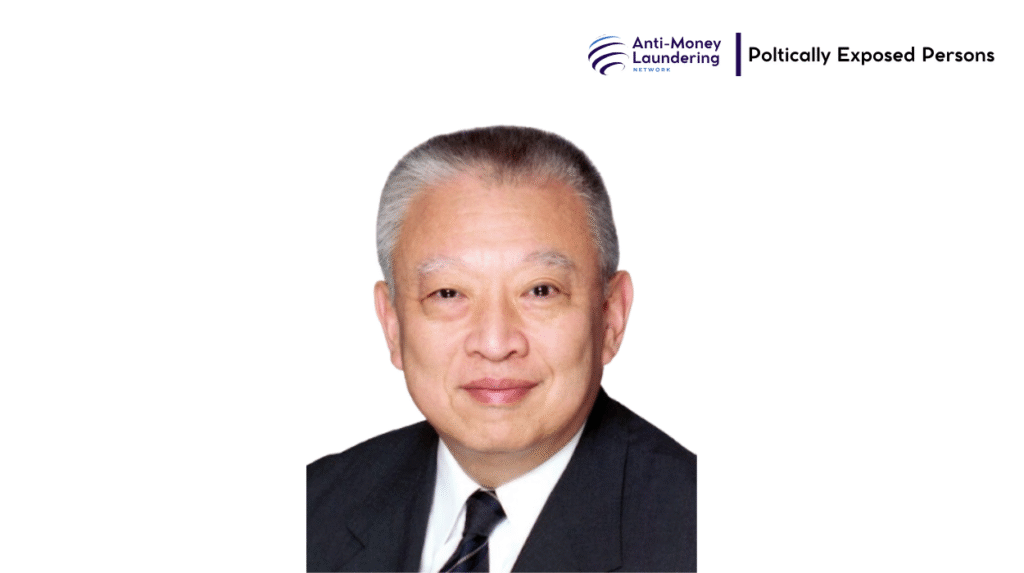Tung Chee-hwa is a key figure in Hong Kong’s recent history, widely recognized as the first Chief Executive of the Hong Kong Special Administrative Region after its 1997 handover from British to Chinese sovereignty. His leadership marked a significant new chapter in the city’s governance, blending colonial heritage with integration into Mainland China. Born in Shanghai and deeply connected to Hong Kong’s business elite, Tung Chee-hwa’s life story combines family legacy, political ambition, and a profound impact on shaping Hong Kong’s identity post-handover.
Early Life and Family Background of Tung Chee-hwa
Tung Chee-hwa was born on July 7, 1937, in Shanghai, China, which influenced his early development before relocating to Hong Kong. His origins in mainland China and later life in Hong Kong helped shape his bicultural identity. The Tung family is well-known for its deep involvement in the shipping industry, with his father founding the internationally renowned Orient Overseas Container Line (OOCL).
Tung Chee-hwa’s educational background includes attendance at St. Paul’s Co-educational College in Hong Kong, followed by a degree in electrical engineering at the University of Liverpool in the United Kingdom. He also earned an MBA in the United States, providing him with valuable managerial and technical skills that supported his successful business and political career. His nationality and citizenship are closely tied to Hong Kong, reflecting the city’s distinct political status.
Personal Life: Spouse, Children, and Family
In his personal life, Tung Chee-hwa is married to his spouse, Betty Tung, a respected figure within Hong Kong’s prominent social circles. Together, they have children and family members who maintain a largely private lifestyle despite the family’s public prominence. The Tung family continues to be influential, balancing both business interests and philanthropic activities in Hong Kong.
Political Career and Major Accomplishments
The pivotal point in Tung Chee-hwa’s political career was his appointment as the first Chief Executive of Hong Kong in 1997, a position he held until 2005. His leadership oversaw a sensitive transition period during which he helped implement the Basic Law and guided Hong Kong through early post-handover challenges. Known for navigating through economic downturns and fostering strong ties with Mainland China, his time in office was marked by both successes and criticism.
He is also known by another name in Mandarin, his Chinese name, Dong Jianhua, reflecting his cultural background. His political career entailed balancing his business experience with governance, while managing public dissent and political controversies. This led many to ask why Tung Chee-hwa resigned, which was primarily due to health concerns and mounting political pressures.
Wealth, Lifestyle, and Personal Assets
Tung Chee-hwa’s estimated net worth is largely a reflection of his family’s extensive business holdings and investments. Although exact figures are private, his estimated wealth places him among Hong Kong’s affluent elite. His lifestyle is considered discreet and respectable, in line with his social and economic standing, with ownership of significant properties and financial assets.
Influence, Legacy, and International Profile
As Hong Kong’s first Chief Executive, Tung Chee-hwa’s legacy is intertwined with the city’s political development under the “one country, two systems” framework. While praised for economic leadership and stability, his tenure also faced criticism concerning political freedoms and governance.
After stepping down, he remained influential through various roles, including his involvement with the China-U.S. Exchange Foundation. This leads to the question: who represents the China-U.S. Exchange Foundation? Tung has played a key role in fostering dialogue and relations between China and the United States, maintaining international diplomatic ties beyond his official government service.
Financial Transparency and Global Accountability: Understanding His Status as a PEP
Due to his high-profile political career, Tung Chee-hwa is classified as a Politically Exposed Person (PEP), a designation that subjects him to enhanced scrutiny in terms of financial transparency and compliance with international anti-corruption regulations.
This classification emphasizes the importance of global accountability for former political leaders like Tung, particularly those with overlapping business and political interests in major financial centers such as Hong Kong. Compliance with these standards protects integrity and reduces risks of financial misconduct among elite politicians.
Clarifying Political Succession and Roles
Why Did Tung Chee-hwa Step Down as Chief Executive?
Tung Chee-hwa resigned mainly due to health issues, along with increasing political pressure and public dissatisfaction stemming from contentious legislative and social matters during his second term.
Who Took Over as Chief Executive after Tung Chee-hwa?
Donald Tsang succeeded Tung Chee-hwa as Hong Kong’s Chief Executive, tasked with addressing governance challenges and restoring public confidence.
Who Was the First Chief Executive of Hong Kong Post-Handover?
Unlike other governmental systems, Hong Kong does not have a president. The highest official role is the Chief Executive, a position first held by Tung Chee-hwa after 1997.
Who Represents the China-US Exchange Foundation?
Tung Chee-hwa has been a leading representative of the China-US Exchange Foundation, actively promoting diplomatic and cultural engagement between China and the U.S.
The Lasting Legacy of Tung Chee-hwa
Tung Chee-hwa’s role as the first Chief Executive of Hong Kong was instrumental in steering the city through a complex and sensitive era. His leadership ensured continuity and economic stability while navigating political challenges that continue to resonate in Hong Kong’s narrative today. His legacy is defined by his family heritage, political achievements, and ongoing contributions to shaping Hong Kong’s political and diplomatic landscape.

